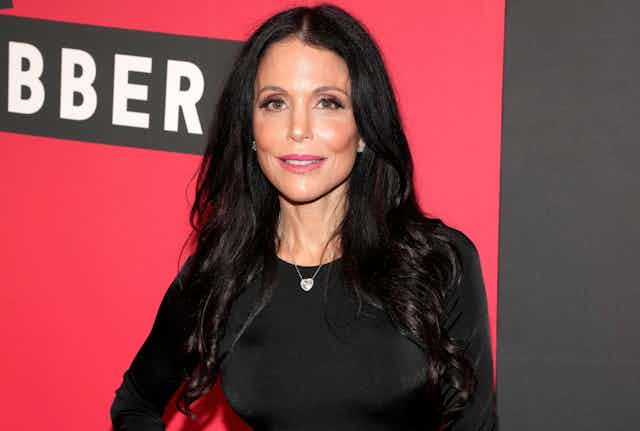“Just because you can exploit young, doe-eyed talent desperate for the platform TV gives them, it doesn’t mean you should.” Original Real Housewives of New York star Bethany Frankel recently issued this rallying call for unionisation of reality TV. She hopes to instigate a “reality reckoning” that will help other unscripted TV performers realise their rights to better pay and working conditions.
And so just as actors and screenwriters are going on strike in the US, reality TV stars are asking whether it’s their time to demand better protections and rights as workers.
US union the Screen Actors Guild and American Federation of Television and Radio Artists certainly thinks it’s time. It’s supporting Frankel in her fight for reality TV star unionisation.
Our research has highlighted the need for a greater focus on the conditions for participants in these shows, who are often filmed in controlled environments (think contestants locked in a house together for weeks without clocks, with meals and free-time restricted) and under contractual arrangements that can involve non-disclosure agreements and tie-ins after the show.
Research into working conditions for production staff in this sector also suggests that long hours, bullying, harassment, sexism, lack of accommodation for childcare, stress and mental health problems are rampant.
Reality television has often been at the centre of screen labour discussions, particularly after its relatively cheap production costs led to a production boom during the previous Writers Guild of America strike in 2008-9. It was largely regarded as a scab genre by the wider industry as a result. But this time around, reality show participants are making their own demands that could change the nature of television production.
And this is not only a US issue. UK cast members from The Only Way is Essex reportedly went on “strike” in 2019. They boycotted ITV’s summer party in protest at the amount they were being paid and are thought to have received a bump in pay within 24 hours.
Even more significantly, in 2011 a French court ruled that participants on Temptation Island (a show where couples are sent to an island to try the single life) should be treated as salaried staff, setting a precedent for considering reality television as work. Discussing the kinds of working conditions they endured, their lawyer, Jérémie Assous, said at the time: “The principle is universal and simple. You cannot make people work 24 hours a day, seven days a week. That is slavery.”
In 2019, an Australian reality TV participant won her case for compensation for post-traumatic stress disorder against Australian home renovation show House Rules. The broadcaster, Channel 7, had argued contestants were not workers.
While these cases could set precedents for better treatment of people on reality TV shows, their rights are in a grey area that depends on local labour laws in a global TV production industry. Reality television participants as a group have long made money and built brands for the sector, with little compensation for their time and toil.
In the UK, Love Island participants reportedly earn a £250 weekly fee while on the show – although this seems to have increased over the years, it’s still well below the UK minimum wage.
Of course, the show becomes a platform for the lucky few who launch lucrative (but precarious careers such as social media influencing, brand endorsements or other lower-level public appearances. But this kind of unwaged “hope labour” is prevalent in the digital economy and creative industries.

What do reality TV workers need?
Problems around workers’ rights in reality TV come from two directions.
First, concerns about pay and the contracts that participants might sign. Some hand over their rights “in perpetuity throughout the universe” – a common legal phrase that indicates the unending ownership rights of these production companies over performances.
During our research, we found a report (not available online) from UK union Equity to the Low Pay Commission that said talent show contestants have signed contracts that waive protection over worker time laws via a loophole under the National Minimum Wage Act for competitions.
The second issue is around the treatment of participants during the production process. In the UK this issue was raised as part of a 2019 parliamentary inquiry into reality television as a direct result of a number of high-profile suicides linked to reality television.
A subsequent Ofcom consultation led to a change in the Broadcasting Code in 2020. Broadcasters must now demonstrate adequate duty of care and a more robust approach to informed consent. This means placing a greater emphasis on welfare support, mental health and analysis of psychological risk. But this change has not led to a conversation about worker rights and pay.
Joining a union for reality TV workers
The UK has fewer long-running reality shows with regular fixed cast members than the US. And given the complexity and uncertainty around reality TV work in general, it remains to be seen how unionisation could apply across multiple formats and sub-genres.
But it’s still important for duty of care issues to be thought about alongside questions of workers rights, pay and contractual obligations.
As part of an Arts and Humanities Research Council-funded project called Re-CARE TV: Reality Television, Working Practices and Duties of Care, we are researching this issue. We are partnering with Bectu (the creative industry workers’ union), to find solutions to improve the working conditions of crew.
We are also working with Equity to examine the benefits of more formalised union representation to better inform reality participants of their contractual rights and expectations of care.
It’s important to take this type of entry into a media career seriously so participants and production staff can lay the foundations for a fruitful career – just like people in any other profession.
Reality television has pioneered precarious, competitive, exploitative and non-unionised models of work that are now endemic across the creative industries. So, while it might be surprising that the “scab genre” is now at the forefront of calls for a more caring industry, it is clear that it is about time for change.

